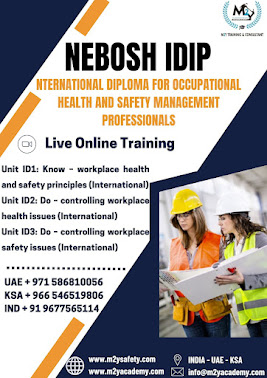Lead Auditor Training in Ensuring Compliance and Excellence Across ISO Standards
In today's globally competitive marketplace, organizations strive to maintain high standards of quality, safety, environmental sustainability, and information security. Achieving and sustaining compliance with international standards such as ISO 9001, ISO 45001, ISO 27001, and ISO 14001 is crucial for enhancing organizational performance and reputation. However, the journey towards compliance and excellence requires more than just implementing these standards—it necessitates proficient auditing practices conducted by skilled professionals. This article explores the importance of lead auditor training across various ISO standards and how it contributes to organizational success.
Lead Auditor Training
Lead auditor training programs are designed to equip individuals with the knowledge, skills, and competencies required to effectively audit management systems based on ISO standards. These programs go beyond mere theoretical understanding by providing practical insights into auditing methodologies, techniques, and best practices. Led by experienced auditors, these courses offer a comprehensive learning experience, covering topics such as audit planning, conducting audits, reporting findings, and follow-up activities.
ISO 9001:2015 IRCA QMS Lead Auditor Training
ISO 9001:2015 sets out the criteria for a quality management system (QMS) and is widely recognized as the benchmark for quality management globally. The International Register of Certificated Auditors (IRCA) offers lead auditor training specifically tailored to ISO 9001:2015, enabling auditors to assess an organization's ability to meet customer requirements and enhance customer satisfaction.
By undergoing ISO 9001:2015 lead auditor training, professionals gain a deep understanding of quality management principles, process approach, risk-based thinking, and continual improvement. They learn to evaluate the effectiveness of a QMS in driving organizational performance and ensuring conformity to customer and regulatory requirements.
ISO 45001:2018 IRCA OHSMS Lead Auditor Training
Occupational health and safety management is paramount in ensuring the well-being of employees and stakeholders within an organization. ISO 45001:2018 specifies requirements for an occupational health and safety management system (OHSMS) to enable organizations to proactively manage occupational health and safety risks and improve performance.
IRCA-accredited lead auditor training in ISO 45001:2018 equips auditors with the knowledge and skills to assess an organization's OHSMS effectively. They learn to identify hazards, evaluate risks, and determine controls to mitigate occupational health and safety risks. Through practical exercises and case studies, participants understand the importance of worker involvement, leadership commitment, and continual improvement in achieving OHSMS objectives.
ISO 27001:2013 IRCA ISM Lead Auditor Training
In an era where information is a critical asset, protecting it from unauthorized access, disclosure, alteration, and destruction is paramount. ISO 27001:2013 outlines the requirements for an information security management system (ISMS) to help organizations manage information security risks effectively.
Lead auditor training in ISO 27001:2013 enables auditors to assess the adequacy and effectiveness of an organization's ISMS in safeguarding information assets. Participants learn about information security controls, risk assessment methodologies, and regulatory compliance requirements. By mastering audit techniques specific to information security, they can help organizations enhance their resilience to cyber threats and maintain stakeholders' trust.
ISO 14001:2015 IRCA EMS Lead Auditor Training
Environmental sustainability is increasingly becoming a focal point for organizations worldwide. ISO 14001:2015 provides a framework for environmental management systems (EMS), enabling organizations to identify, manage, monitor, and control their environmental impact.
IRCA-accredited lead auditor training in ISO 14001:2015 equips auditors with the expertise to evaluate an organization's environmental management practices. They learn to assess environmental aspects, compliance obligations, and performance indicators to determine the effectiveness of the EMS. By conducting thorough audits, they help organizations identify opportunities for resource optimization, waste reduction, and pollution prevention, thereby contributing to sustainable development.
Conclusion
Lead auditor training plays a pivotal role in ensuring organizations' compliance with ISO standards and fostering continual improvement. By investing in competent auditors equipped with the necessary knowledge and skills, organizations can streamline their management systems, mitigate risks, enhance performance, and meet stakeholder expectations. As the regulatory landscape evolves and market dynamics change, the demand for proficient lead auditors will continue to rise, underscoring the importance of ongoing professional development in auditing practices. Through rigorous training and certification, auditors become catalysts for organizational excellence, driving tangible benefits for businesses, society, and the environment.




Comments
Post a Comment